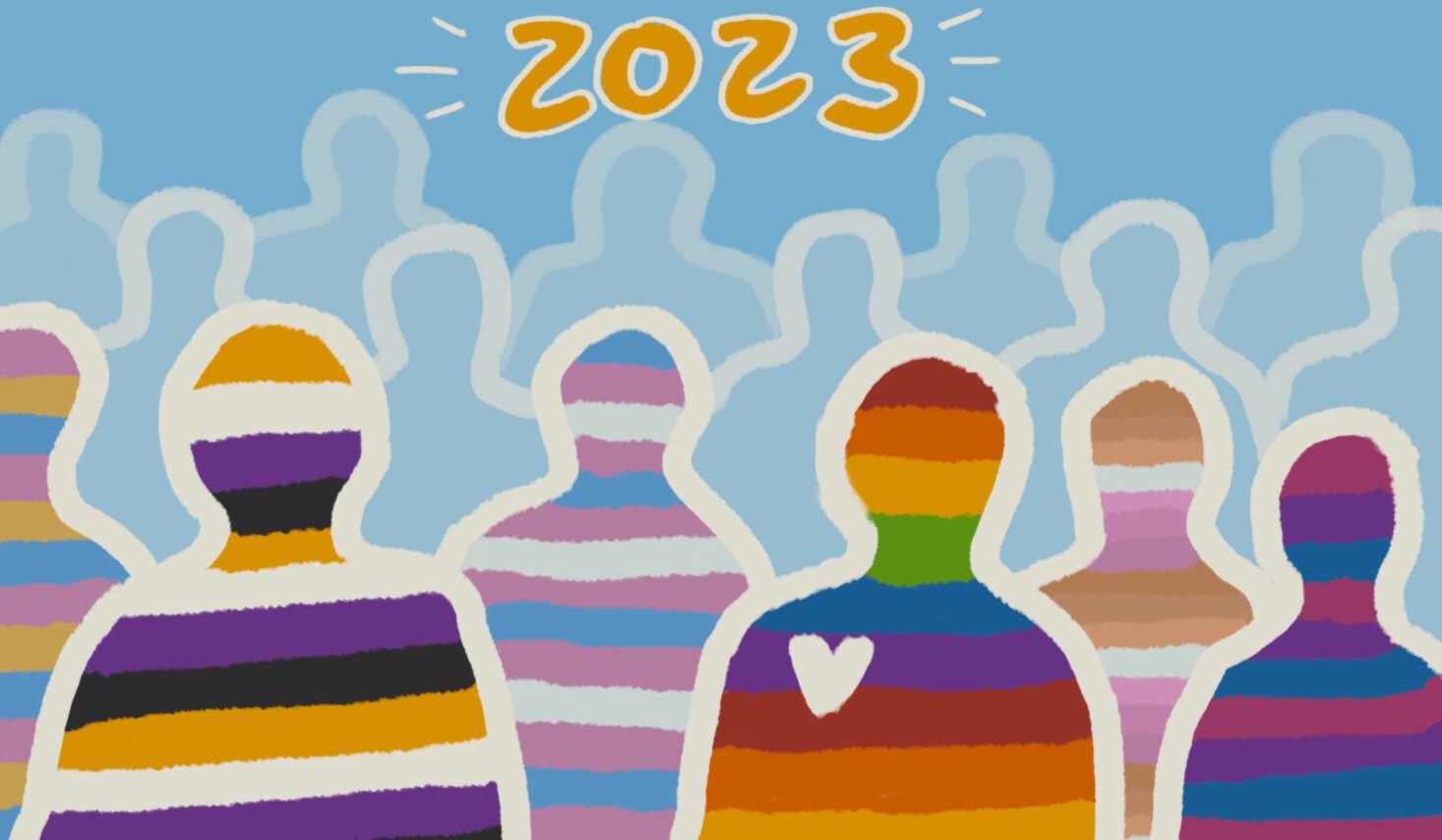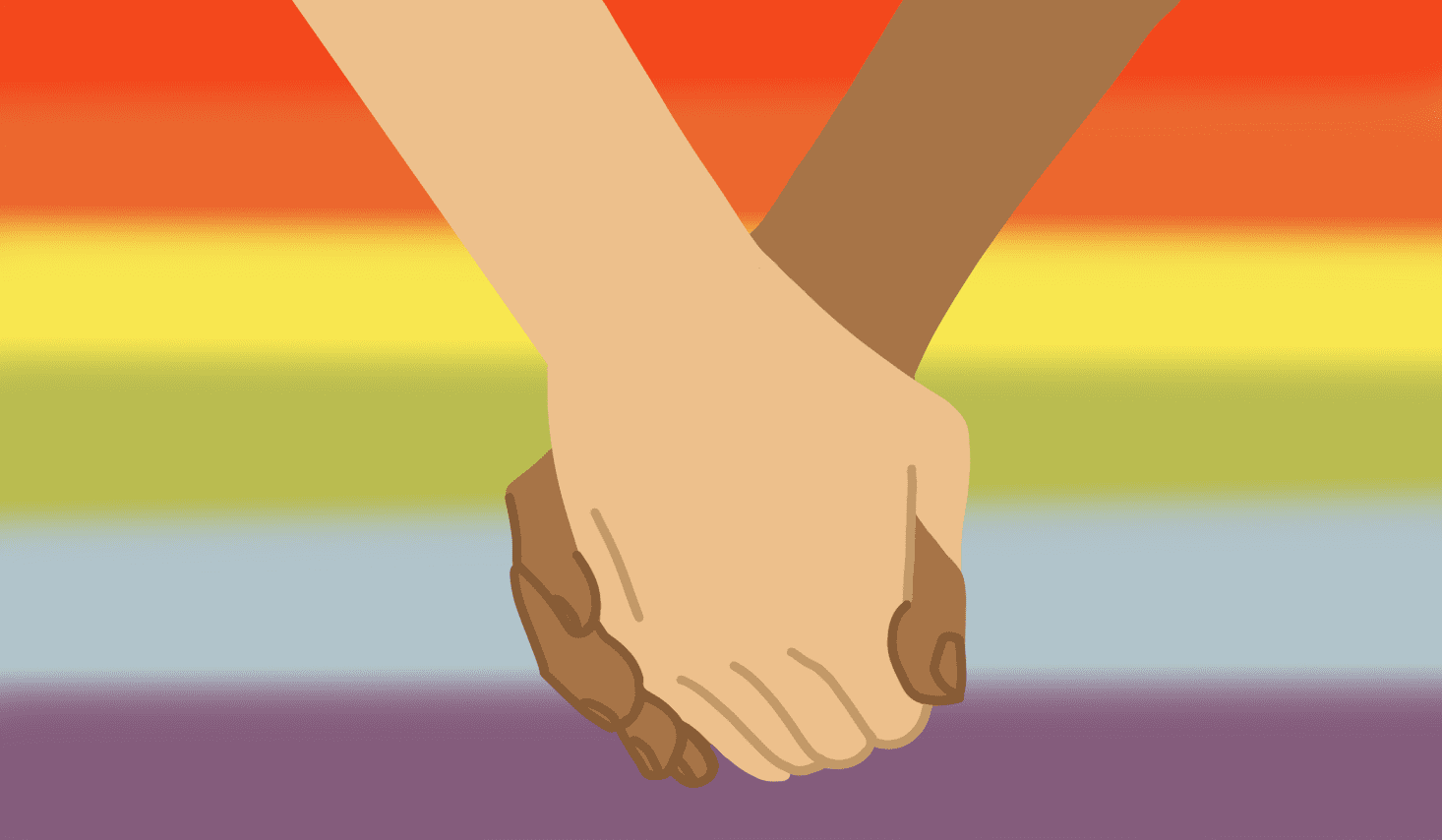
There has been a lot of debate about the term queer. Many have spoken out in defence of the word or, in the opposite direction, have called for its use to come to an end, likening it to racist terms that simply have no place in society.
The history of the term itself is loaded, particularly with how it was colloquially used as an offensive slur. Terminology and phrases within the LGBTQ+ community are often changing and evolving and the Q-word seems to be next on the radar. For those growing up in the late 1990s, our experience and witnessing the use of the term greatly differs from the generation before us. What arrived as a term defining something unusual or different in 1513 has since faced quite the etymological shift.
Now, in today’s age, plenty of people in the community fondly use the term as a descriptor for their identity. However, the idea of queerness, or the term ‘queer’ itself, isn’t a brand new Gen Z-ified concept. In fact, the reclamation of the term (and its uptick of usage) occurred here and overseas across the 1980s and 1990s. Notably, in the United States, Queer Nation, an LGBTQ+ activist group armed with non-conformist forms of expression and a political manifesto of fighting prejudice and homophobia, came into the spotlight. Borrowing tactics from AIDS Coalition to Unleash Power (ACT UP), which was fighting to draw attention to the AIDS pandemic, Queer Nation aimed to rewrite the associations made with the term ‘queer’.
In a more contemporary lens, the term queer has cropped up in TV show titles such as the 1999 British series Queer As Folk (as well as its American counterpart) and the long-running US reality show Queer Eye. Elsewhere, BROCKHAMPTON released a track titled Queer, while non-binary artist Sam Smith explores love in their “queer love hymn” on their latest album, Gloria. The point is: the sentiment of what it means to be ‘queer’ has continually been under change and, to some degree, reinterpretation.
Our queerness brings us all together and without something denoting that relationship, I feel that our community would be much more divided.
As the discussion continues to unfold, new perspectives continue to chime in, sometimes even with their own well-known attached chants: “We’re here, we’re queer, get used to it.”
A similar response is echoed by Josh Osman, 20, who has sought out comfort in the ‘Q-word’ label. “I see it as an umbrella term for a cluster of microlabels that I don’t always find myself fully aligning with. For a long time, I used the term ‘gay’, but I now feel like ‘queer’ is looser and allows for a less rigid definition,” he tells GAY TIMES. This is, notably, a call in favour of the term.
The choice of the label ‘queer’, Josh explains, has allowed him to navigate gender and identity on his own terms, and not be held back by the confines of a label. “Our culture, whether that’s our music or our language, is often used as an identifier between us, but I’m also aware that ‘queer’ feels broader for me – that it tells someone that I don’t experience or interact with gender in the way that most cisgender or heterosexual people do, without me feeling boxed into a set of preconceptions.”
In some cases, as Seema Sharma, 18, from Toronto, Canada, explains to GAY TIMES, ‘queer’ is a powerful reclaimed term that appeals to younger generations. “To be queer means to have a relationship with your gender or sexuality that deviates from the one that society tells you to have,” they say. “It means breaking down the harmful values of heteronormativity and creating a sense of safety and belonging with other people like you.”
The evolutionary use of the ‘Q-word’, Seema says, has allowed a younger audience to find sanctity and relatability in its meaning while being aware of its loaded history. “I believe that removing ‘queer’ could have negative effects on the LGBTQ+ community. There’s a certain sense of belonging that comes with being surrounded by other queer people,” they explain. “The internal issues of the LGBTQ+ community would be amplified without this commonality. Our queerness brings us all together and without something denoting that relationship, I feel that our community would be much more divided.”
Vega, 20, identifies as lesbian but interchangeably uses the label ‘queer’ as, she says, it encompasses her identity in a way that’s easily understood. Agreeing that people may still perceive ‘queer’ as a “pejorative” term, Vega believes positive use of the label can overwrite its past meaning. “For me, being queer is fighting so all queer members have rights and can live without fear, but it’s also important to remember our history and to listen and to honour queer elders,” she tells GAY TIMES. “Community is also a big part of what being queer means for me. It’s important to support each other and learn from the experiences of others.”
For Rhys James, 22, the term ‘queer’ cements a sense of community and “endearment” for the Gen Z LGBTQ+ community. “We understand the different connotations that come with the use of the word depending on age and personal experience, but I don’t think that should stop LGBTQ+ individuals from claiming it,” he says.
Rhys adds that having an awareness of the term’s derogatory use and the pained history shouldn’t prevent younger generations from forging their own connection with the label. “Speaking from personal experience, ‘queer’ was never used in the same context so its meaning is different altogether,” he says. “In the same way, the word ‘gay’ was used to berate a lot of LGBTQ+ people of my generation, it’s no surprise that we have found comfort in a less traumatic term.”
As Joshua Gamson reflects in his essay Must Identity Movements Sef-Distruct? A Queer Dilemma, the debate over the term ‘queer’ has marked a “process of boundary-construction and identity negotiation”. And seemingly, the discourse (and its affiliated areas of queer theory) has carried over into today’s society.
While, we, as a younger generation, may not have felt the physical harm or the ostracism brought on by this language – this doesn’t mean the history is removed from our experiences. What may be viewed as a mild linguistic tactic to drain the venom out of slurs angled at the LGBTQ+ community, is an act of anti-oppression and acceptance of derogatory language. Queerness, and the label itself, challenges the “norm”, as well as pre-existing categories, and attempts to incorporate an inclusive common identity.
The modern result of this conversation around the use of ‘queer’, for younger generations, has strayed into a new direction — one that debates both language and presentation. The complexities of queerness and how it’s perceived recently came to attention after a tweet that went viral argued: “being queer is not just about who you fuck or which gender you identify as it’s much more complex than that and it’s a whole different culture.”
being queer is not just about who you fuck or which gender you identify as, it's much more complex than that and it's a whole different culture, it's normal that queer people can spot other queer people and if you think that's weird maybe you're the weirdo
— gemm☄️ (@wildestlesbian) January 7, 2023

While discussing identity online is not the best idea, particularly one with a character-limiting format and, often, a woeful lack of nuance, Rhys agreed that the tweet held the right sentiment, arguing queerness is not identified based on the label, but broader distinguishable factors. “This is due to the physicality that is used to indicate a queer identity. Queer people don’t announce themselves as queer through the word itself, but through an array of visual indicators, [which] is why fashion and personal style play a big part in queer culture.”
Instead, Rhys argues that queerness is evolving as mainstream culture and queer culture begin to overlap: “There’s an element to queerness that feels like a mentality and set of beliefs, than something that focuses primarily on sexuality and gender – it’s less about who you are attracted to or have sex with, and more about who you relate to and feel safe around.”
Gemm, who also interacted with the viral post, came to its defence. “I’ve seen many people online saying that it’s wrong to think that someone, who hasn’t directly come out to you, is queer,” she says. “There’s a very big difference between outing someone and queer people spotting each other. Assuming that everyone is straight until they come out is a dangerous take and that’s why I interacted with that tweet.”
There’s no doubt the discussion of labels and their inclusivity won’t end in our lifetime, and they shouldn’t. There have been plenty of moments language has been expanded to include identities, as James Grieg notes, that aren’t an appropriate fit.
From my own perspective, ‘queer’ is a label that I, for a while, used while mindful that I didn’t endure the belittling and abuse that previously came with it. While some argue the label is some quasi-national shorthand, Josh has a simpler answer. “This word is ours to reclaim. If it’s been used in a derogatory way in the past, and we’ve taken that and turned the negative power of that word into something celebratory, that is our way of moving forward and evolving our understanding of queer culture.
“To me, being ‘queer’ is about how I identify with, engage with and understand gender. It isn’t something binary or just about who or how I love – it’s more. It’s a way of existing, it’s like a rebellion against the rigidity of the culture that conditioned us growing up.”


